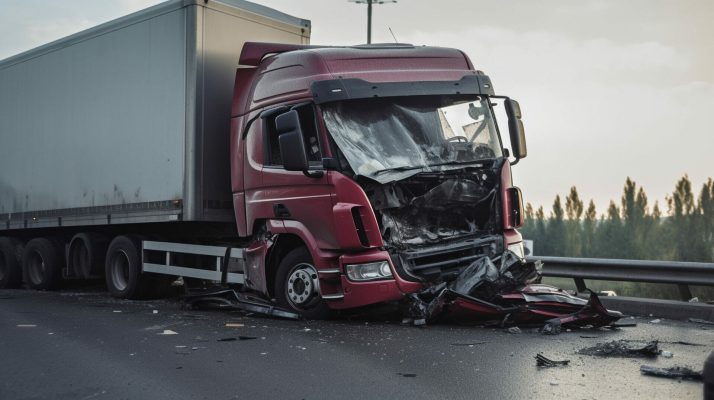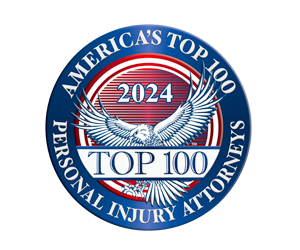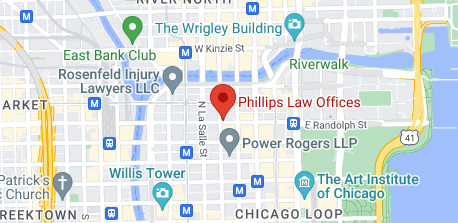On-road dangers from truck driver accidents are significant. These accidents can arise from several factors, including driver error, exhaustion, speeding, distractions, impaired driving, inadequate training, poor maintenance, unfavorable weather, and mechanical failures. Unfortunately, these truck accidents often cause significant loss of property and life. Given the complexity of these accidents, which involve large commercial vehicles and possibly multiple parties, the role of an attorney is crucial. An attorney specializing in truck driver accidents can offer victims and their families invaluable advice and support. They possess the legal expertise to work their way through the intricate web of regulations, insurance claims, and potential liability issues related to truck accidents. Read on for details on workers’ compensation and truck driver injuries.
Impact of truck accidents
Truck accidents on the highway can happen if the driver or any other driver speeds, drives while distracted, makes a wrong turn, fails to merge adequately, runs a red light, or violates traffic rules. Regardless of the reason, these accidents can result in a truck rolling over, jackknifing, veering off the road, or colliding with another vehicle. As a result, the impact on the involved parties, community, and economy is significant. Here is a discussion on the consequences of truck accidents in the nation.
Physical injuries and fatalities
Due to the large size and weight disparity between trucks and other vehicles, truck accidents often result in substantial damages. Drivers are more vulnerable to musculoskeletal disorders affecting the neck, back, and shoulders. They are prone to falls, which could lead to broken bones or soft tissue injuries. Victims may sustain life-altering injuries such as traumatic brain injuries, spinal cord injuries, and multiple fractures.
Psychological effects
Some truck drivers may die or sustain permanently disabling injuries after an accident. Fatalities can be devastating for families and loved ones. Anxiety, depression, post-traumatic stress disorder (PTSD), and other mental health issues may affect survivors. Emotional trauma and psychological distress are overwhelming for the victims and their families.
Property damage
Truck collisions can cause significant damage to automobiles, motorcycles, and infrastructure like bridges, traffic signs, guardrails, and utility poles. The force generated by the crash may cause the involved vehicles to wreck, necessitating expensive repairs or even total write-offs. When a truck collides or loses control near a building, it can cause structural damage to the property. The collapsed walls, broken windows, and compromised structural integrity may necessitate repairs or demolition of the damaged building.
Business losses
Truck accidents can have a significant economic impact. It can disrupt the operations of businesses that rely on the timely delivery of goods. If the truck involved in the accident was transporting valuable cargo, its destruction or delay in supply chains could result in financial losses for both the shipping company and the recipient. Insurance costs for trucking companies may rise, and legal settlements or judgments resulting from accidents can be financially draining.
Traffic disruptions
Major truck accidents often result in road closures or significant traffic congestion. Officials work hard to clear the scene, investigate the incident, and assist victims. Overall, traffic disruptions can harm the local community, businesses, and transportation networks.
Legal and insurance complexities
When a truck accident occurs, the involved party has to undergo legal and insurance procedures. It requires determining responsibility, gathering information, settling insurance claims, and navigating the legal system- all can be difficult. This complexity emphasizes the need for legal representatives to safeguard your rights and interest.
Most truck accidents have severe repercussions that affect people emotionally, physically, and financially. To help victims and their families recover from the aftermath of a truck accident, addressing these impacts requires a comprehensive approach, including medical attention, legal counsel, and support networks.
-
Truck Driver Injuries
Safety norms to prevent truck accidents
The Federal Motor Carrier Safety Administration (FMCSA) is the primary federal government agency responsible for regulating and supervising over 500,000 commercial trucking companies. The goal is to reduce large truck crashes, injuries, and fatalities. The agency limits the number of hours truck drivers can be on the road to prevent chances of accidents. Drivers transporting any cargo type must adhere to the following rules:
- Pass written-skills tests, adhere to age restrictions, and meet medical requirements to obtain a Commercial Driving License (CDL).
- Receive proper training and education before obtaining their CDL.
- Can drive a maximum of 11 hours after ten consecutive hours off duty.
- Use Electronic Logging Device (ELD) to record their service hours accurately.
- Undergo drug and alcohol testing programs to ensure they are not impaired while operating vehicles.
- Perform regular maintenance and inspections to identify and address potential safety issues.
- Evaluate the safety performance via Safety Measurement System (SMS) to identify high-risk carriers.
- Conduct roadside inspections to enforce safety regulations and identify violations.
- Follow the traffic regulations in each state that truck drivers travel through.
Despite safety norms and regulations, many truck drivers suffer injuries while on duty. The nature of their work exposes them to a variety of hazards and accidents. They have to perform repetitive tasks like lifting, pulling, carrying, climbing, and moving loads. While loading or unloading, they sustain injuries like sprained ankles, fractures, or head trauma. Long shifts and erratic schedules can contribute to driver fatigue and sleep deprivation, impairing judgment, reaction times, and overall performance. Fatigue-related accidents can cause severe injuries.
Workers’ compensation benefits for truck drivers
When employees sustain work-related injuries or illnesses, their employer can offer workers’ compensation benefits as insurance. The benefits for truck drivers generally follow the same principles as for other workers. However, given the distinctive features of the trucking sector, there might be some particular benefits and considerations that apply to truck drivers. Here are some significant aspects of workers’ compensation benefits for truck drivers:
Work-Related Injuries
When truck drivers suffer illnesses or injuries arising from their work, workers’ compensation typically covers them. It covers damage associated with loading and unloading, road accidents, repetitive motion injuries, or exposure to dangerous substances.
Medical costs
Workers’ compensation for truck drivers might include the expenses of all-required medical treatment for their work-related injuries or illnesses. It can cover medical bills involving hospital stays, surgeries, doctor visits, physical therapy, medications, and other medically required services.
Lost income
Workers’ compensation may offer wage replacement benefits if a truck driver can no longer work because of an illness or injury sustained at their workplace. The purpose of these benefits is to make up for some of the lost wages the driver experienced while recovering. However, the exact amount, duration, and eligibility depend on state laws and case severity.
Vocational rehabilitation
Workers’ compensation may pay for vocational rehabilitation services in cases where an illness or injury to a truck driver prevents them from working at their previous job. These services assist the driver in acquiring new job skills or finding alternative employment opportunities that accommodate their physical limitations.
Permanent disability
Permanent disability benefits are available to truck drivers who become permanently disabled due to an illness or injury sustained at work. These benefits intend to compensate for the long-term effects of the disability and assist drivers in leading a quality life. The severity and extent of the disability will determine the precise amount of benefits.
Emotional distress
Truck drivers often face demanding and stressful work environments that adversely affect their mental health. Workers’ compensation benefits may pay for necessary treatment and counseling if a truck driver develops a work-related mental health condition, such as post-traumatic stress disorder (PTSD) or depression.
Death benefits
Workers’ compensation may pay dependents death benefits if a truck driver dies because of work-related illness or injury. Typically, these benefits cover funeral costs, monetary support for the surviving spouse and children, and other associated expenses.
Truck drivers must understand the governing rules and regulations regarding workers’ compensation. Since these laws vary, consult a qualified attorney specializing in workers’ compensation for guidance. Whether the injured truck driver worked as an employee or an independent contractor is considerable. The attorney will help you reach the relevant workers’ compensation board or agency for accurate and up-to-date information based on your truck driving case.
Employee vs. Independent contractor
Different trucks on US roads operate via company drivers or owner-operators. They deliver a variety of goods from one location to another. Even though they both perform similar roles, many things set them apart. Company drivers use trucks provided by their respective employers for business purposes. They generally receive hourly pay for local driving and mile-based pay for long-distance driving. The company pays for the truck insurance, fuel, tolls, repairs, and maintenance. Contrarily, owner-operators work freely and earn more than company drivers. They are responsible for overhead costs, maintaining, insuring, and paying for their trucks. They have more authority over the loads they haul than company drivers do. They can transport goods directly or by renting their vehicle to a firm.
In terms of workers’ compensation, employees get more extensive benefits compared to independent contractors. Truck drivers with a separate business entity are responsible for insurance coverage, including any disability or health insurance. However, they can pursue legal action against the company or client if they believe their injury or illness was due to negligence or unsafe working conditions. It requires proving fault or liability, which can be more challenging without an attorney. A lawyer can provide comprehensive information on the rights and benefits applicable to employees and independent contractors. If an employer denies your compensation claim, an attorney can help navigate the appeals process, gather necessary evidence, and present a compelling case to challenge the denial.
Chicago workplace injury lawyer for recovery options
Workers’ Compensation Attorney at Phillips Law Offices work with truck drivers and other workers to help them get fair recoveries. We can review your medical records, work-related incident reports, and other relevant evidence to determine the strength of your case. If there are any potential issues or obstacles, we can advise you on how to address them effectively. If your employer’s insurance provider or the workers’ compensation board offers you a settlement, we can negotiate on your behalf. We will fight for your rights and ensure you get just compensation for your medical costs, lost wages, and any long-term impairment or disability.
Legal assistance
Finding supporting evidence is necessary when presenting a workers’ compensation claim for a truck driver. We can identify and submit pertinent proof to back up your claim. Our personal injury lawyers can assist in gathering medical records, getting expert advice, speaking with witnesses, and collecting other types of evidence. We will inform you about statutory deadlines or specifications for your truck driving case.
Appeals and hearing
Workers’ Compensation laws can be complicated, and a specialized attorney can help you understand your rights and legal options. If your workers’ compensation claim is denied or contested, an attorney can help you navigate the appeals process. They will prepare the required legal documents, gather evidence, and fight for your benefits at hearings or before administrative boards.
Third-party claims
Our proficient legal team can evaluate the merits of your workers’ compensation claim. They can safeguard your rights if your employer engages in discrimination, harassment, or retaliation because you filed a compensation claim. In cases where a third party, such as an equipment manufacturer or subcontractor, is accountable for your work-related injury, our attorney can help pursue additional compensation through a personal injury claim. They can assess the viability of such claims and manage the legal proceedings on your behalf.
Our Chicago legal firm can provide valuable assistance and support to truck drivers in various ways. Contact us now if you are dealing with a work-related injury or illness. We will work diligently to protect your interests and help achieve the best possible outcome in your truck driver accident case.
Also Read:







